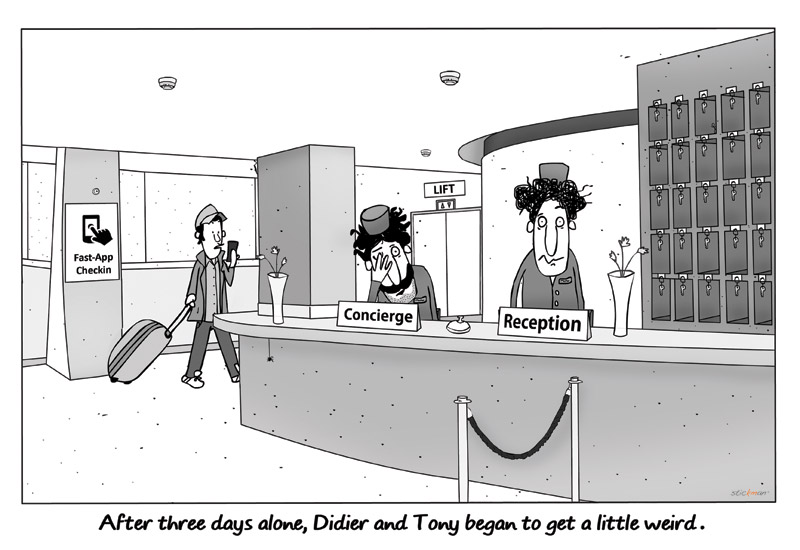6. Alone together — the digital traveller
Perhaps the key difference between boomers and millennials is that the latter are more willing to trust technology. It might crash, but it doesn’t get cranky or forgetful at the end of a long shift, or look like it wants to stab you with a complimentary pencil for asking one too many questions.
However this doesn’t mean integrating gadgetry for the sake of it, but embracing technology that makes their world easier, quicker, and more glamorous.
Let’s test the boundaries. Ever seen an in-room safe big enough for a laptop? Why then, not make the wardrobe the safe? Why look for light switches and flick them repeatedly until you find the one you want when a phone app can offer complete control and personalisation? Why root around looking for a socket to charge your phone? Photovoltaic surfaces mean simply placing your phone down is rewarded by an instant charge. There’s more. Take the hotel concierge, holder of the golden keys, full of local advice and handy restaurant recommendations. But so is TripAdvisor, and with substantially less chance of money changing hands somewhere along the line. Why queue for reception when you can go straight to your room via online check-in and open the door via an app?
Hilton has made the pledge that all of its rooms will be smartphone enabled by the end of 2016, and Starwood won’t be far behind.
While we’re at it, does the concept of reception even need to exist anymore? Could it become mobile, closer to an operational butler service, where the customer simply tags their location and reception comes to them?
Think any of this sounds maverick or expensive? I’m sure that airlines thought so once, but how much do you think they’ve saved by implementing an online check-in? Or fast track luggage drop? Has the customer benefited from not having to join a snaking queue? I’m willing to go out on a limb and say they have.
However remember, when designing tech solutions, that Wi-Fi is considered an essential service by millennials, and charging for it, particularly at traditional hotel prices, is nothing less than a distasteful tax on connectivity.
When you look at the desire, the development and the implementation already required, and the fact that it is only set to increase year on year, this is the best time in history to be a hospitality designer. The question is no longer, can operators afford great design, but can they afford to live without it?

| Advertisement |









 Search our database of more than 2,700 industry companies
Search our database of more than 2,700 industry companies









